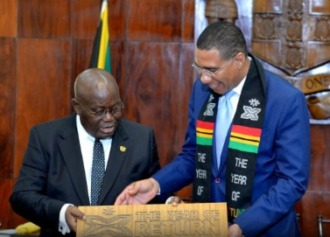
With 80 percent of the Caribbean diaspora holding college degrees; 65 percent working in the private sector in the U.S., Canada, the United Kingdom and elsewhere; and a quarter described as well-off with either a net worth or annual incomes more than $100,000, “these affluent and accredited individuals are of critical importance in making informed investments back home,” according to a World Bank report. “They tend to have a level of investment sophistication and business acumen that promotes best practices among investees, demands accountability and results, and can have a major contribution to the development of Caribbean economies.”
Those conclusions were based on the results of a study conducted among almost 1,000 “self-identified members of the Caribbean Diaspora” who live and work in cities and town across North America and the United Kingdom with at least half based in New York, London, Toronto and Miami.
Interestingly, Jamaicans showed the highest level of interest in investing in their birthplace, with 62 percent indicating they would put some of their resources in their homeland. Next were Trinidadians, with 34 percent expressing such investment interest; Barbadians 24 percent; Guyanese 15 percent; Bahamians 13 percent; Grenadians 11 percent; Haitians 11 percent; Antiguans 8 percent; Dominicans 7 percent; and Kittitians 6 percent.
‘Over 85 percent of Diaspora members give back to the Caribbean in some way, shape or form. While the majority send remittances, make donations, buy property or invest in a venture, many others are involved as volunteers or mentors” stated the report titled, “The Caribbean Diaspora: A Source for Venture Investment?”
According to the World Bank:
•Almost half of those interviewed had incomes between $50,000 and $100,000; slightly more than one in five made $100,000 to $200,000; five percent made more than $200,000; while one in three had an annual income that was between $50,000 and $100,000 .
Source: nycaribnews.com


